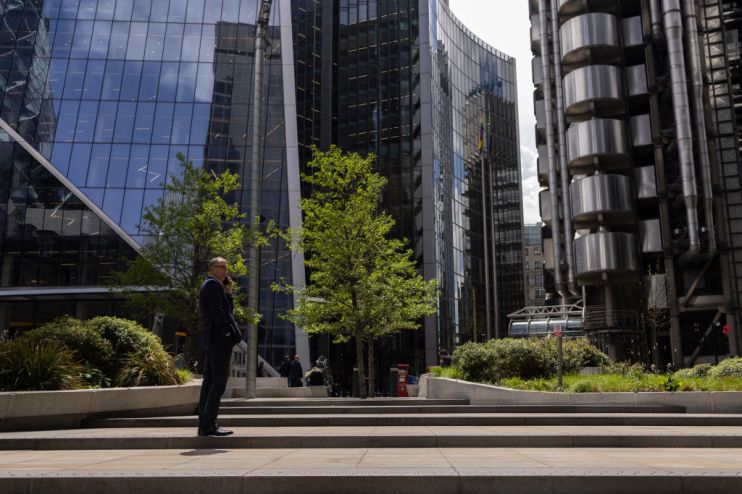‘Not up to government’: Return to office under threat as ministers mull legal right to work from home

Brits could be granted the right to work from home forever under shock post-pandemic plans being considered by the government.
Ministers have proposed legal changes that would prevent employers from forcing staff to come into the office unless they can prove it is essential.
The government will consult on the plan over the summer ahead of possible legislation later this year, the Mail reported.
The shock move, which forms part of efforts to promote flexible working, will spark a fierce backlash among business leaders keen to get workers back into the office.
It could also spell further trouble for the thousands of companies, such as those in the hospitality industry, that rely on footfall in town and city centres.
A Whitehall source told the newspaper: “We are looking at introducing a default right to flexible working. That would cover things like reasonable requests by parents to start late so they can drop their kids at childcare.
“But in the case of office workers in particular it would also cover working from home – that would be the default right unless the employer could show good reason why someone should not.”
The Government today again shot down the reports.
It comes after leaked Cabinet Office documents revealed ministers will continue to advise people to work from home where possible, casting doubts over a return to the office even when the final stage of restrictions is eased.
The documents, seen by Politico, also said perspex screens that have been widely installed in businesses across the country will be scrapped as they could in fact help speed the spread of Covid-19.
Boris Johnson’s spokesman yesterday played down the reports, saying they “do not reflect the government’s thinking”.
“We need to analyse more data on this variant before any decisions are made,” he added.
Under current laws, employers can require staff to come into the office and failure to do so can be deemed an unauthorised absence.
But the government is considering changing the law to encourage flexible working and business secretary Kwasi Kwarteng has established a taskforce to advise on the changes.
Chancellor Rishi Sunak has previously backed a return to the office, saying in March that employees would quit if they could not go back in.
But business minister Paul Scully told City A.M. last week that it will be up to “personal discretion” whether businesses return to the office later this year.
Government not needed
Amanda Cusdin, chief people officer at Sage said it was “abundantly clear” that the future of work should be a hybrid approach, where possible.
“Business leaders should not underestimate the complexities of returning to the office and the changing needs and expectations of both colleagues and customers,” she continued.
“We believe working within an adaptable structure rather than a fixed policy is best. This is an ongoing process of experimentation, which will assess what delivers the best outcomes for all.”
Leaders have also said that the government should stay out of it, as firms will decide what will works best for them and their staff when the lockdown finally ends.
Kate Shoesmith, deputy chief executive of the Recruitment and Employment Confederation, told the Press Association: “Businesses and workers across the UK have proven that long-term remote working is possible and beneficial for some of us.
“It’s right that employees should have the right to request flexible working arrangements. However, remote working won’t be the best policy for everyone.
“Individual employers should think seriously about what is best for their business and consult with their employees before deciding their stance on remote or flexible working. This is a business conversation with their people, it does not need intervention from government.”
A spokesman for the Mayor of London, Sadiq Khan, said: “The pandemic has clearly changed the pattern of work in this country, but lots of central London’s brilliant businesses depend on footfall that comes from office workers – whether our dry cleaners, cafes, shops or bars.
“Many employers are exploring a hybrid model of working whereby most staff split their time between remote and office working, and the mayor recognises there are benefits to people’s work-life balance of not being in the office every day Monday to Friday.
“But as we emerge from lockdown, seeing more people safely return to offices and workplaces will be an important part of our economic recovery.”
Richard Burge, chief executive of London Chamber of Commerce, added: “The majority of businesses who are able to do so have told us that they will continue working from home in some form each week beyond the pandemic.
“Whether because they’ve downsized or offloaded offices, or see the productivity benefit in remote working, or a number of other reasons, the simple fact is that the pandemic will deliver a flexible working legacy for many.”
But Mike Clancy, general secretary of the Prospect union, said there was a risk a big shift in working patterns would create a two-tier workforce, “further divided between those who can work from home being given flexibility, and those who can’t being given none.”
Treasury minister Jesse Norman told Sky News an announcement would be made in due course, adding: “Of course we want a balanced return to work.
“This is going to be very company or organisation specific and any guidance the government puts out is going to have to recognise that.”